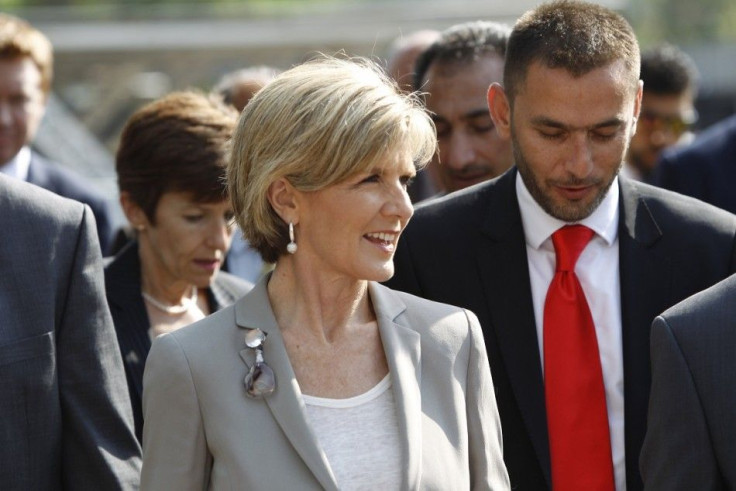Australia's Julie Bishop Expected To Broker A Deal Between US And Iran In Tehran Visit

Australian Foreign Minister Julie Bishop has received an invitation from her Iranian counterpart to visit Iran in April. She will become the first senior official from Australia to travel to Tehran in 10 years.
Iranian Foreign Minister Mohammed Javad Zarif had requested the presence of Bishop. The Daily Mail reports that the Australian official’s visit to Iran suggested a possible game-changer in the ongoing fight against terrorism in the Middle East. The U.S. had reportedly given the go signal to Bishop to accept Iran’s invitation with the hope that she could play a crucial role in resuming a constructive dialogue between Iran and Washington.
Australia may also pursue a trading relationship with Iran as the country exports products like meat and wheat. Bishop’s visit to Iran is set to take place less than two months before Iran and the U.S. will reach the deadline for a nuclear energy deal.
The Australian foreign minister may possibly travel to Baghdad and Riyadh, the capital of Saudi Arabia, reports SMH. Australia currently has around 600 troops and several warplanes committed in the U.S.-led effort to retake territories held by ISIS in Iraq and Syria.
In the past few years, other world leaders had rarely visited Iran. UN High Representative Catherin Ashton was the last official from the West to visit the country in in 2012. The last Australian foreign minister to visit Iran was Alexander Downer back in 2003.
Bishop’s popularity has soared in the last 12 months due to her significant efforts in the international scene especially on matters regarding national security and foreign diplomacy. She had notably confronted Russian President Vladimir Putin at a summit in Italy over the MH17 plane that crashed in Ukraine and killed 38 Australians.
According to Professor Amin Saikal from the Australian National University, Bishop’s visit to Iran is expected to be “extremely significant.” Saikal said there are encouraging signs that U.S. and Iran will close a deal by March 31. He believes that a comprehensive agreement will open Iran to possible trade relations.
To report problems or leave feedback on this article, contact: r.su@ibtimes.com.au





















